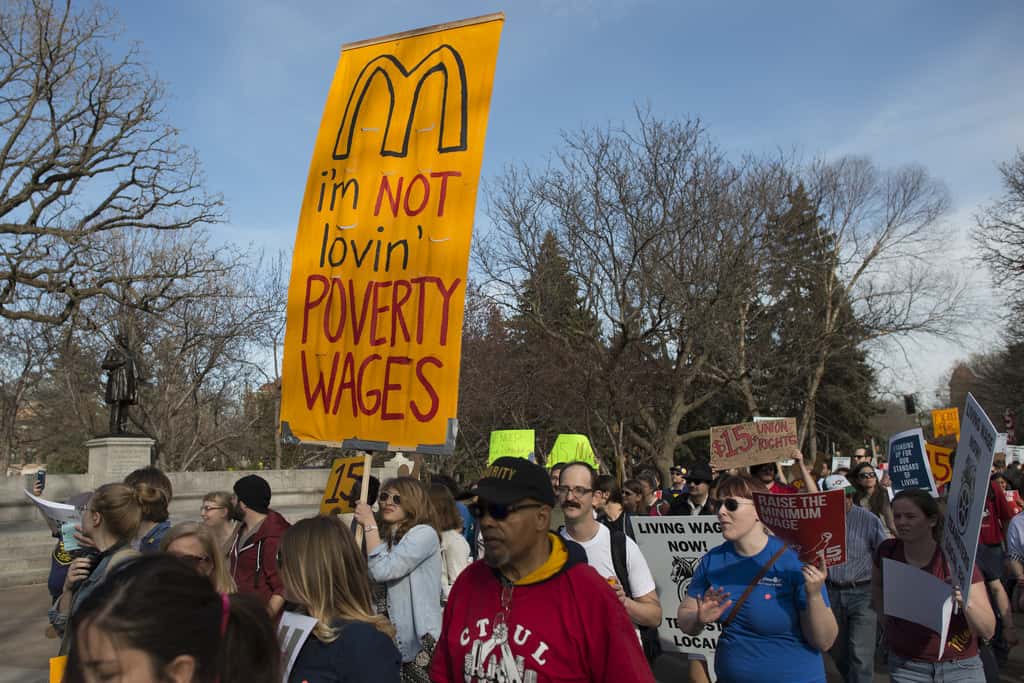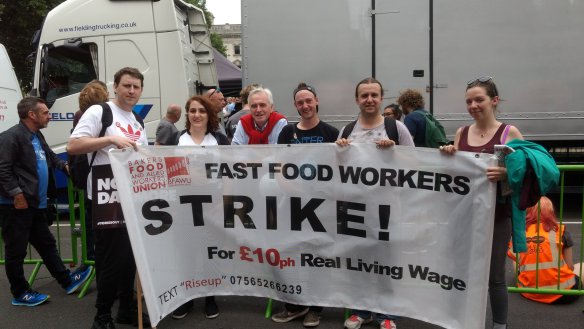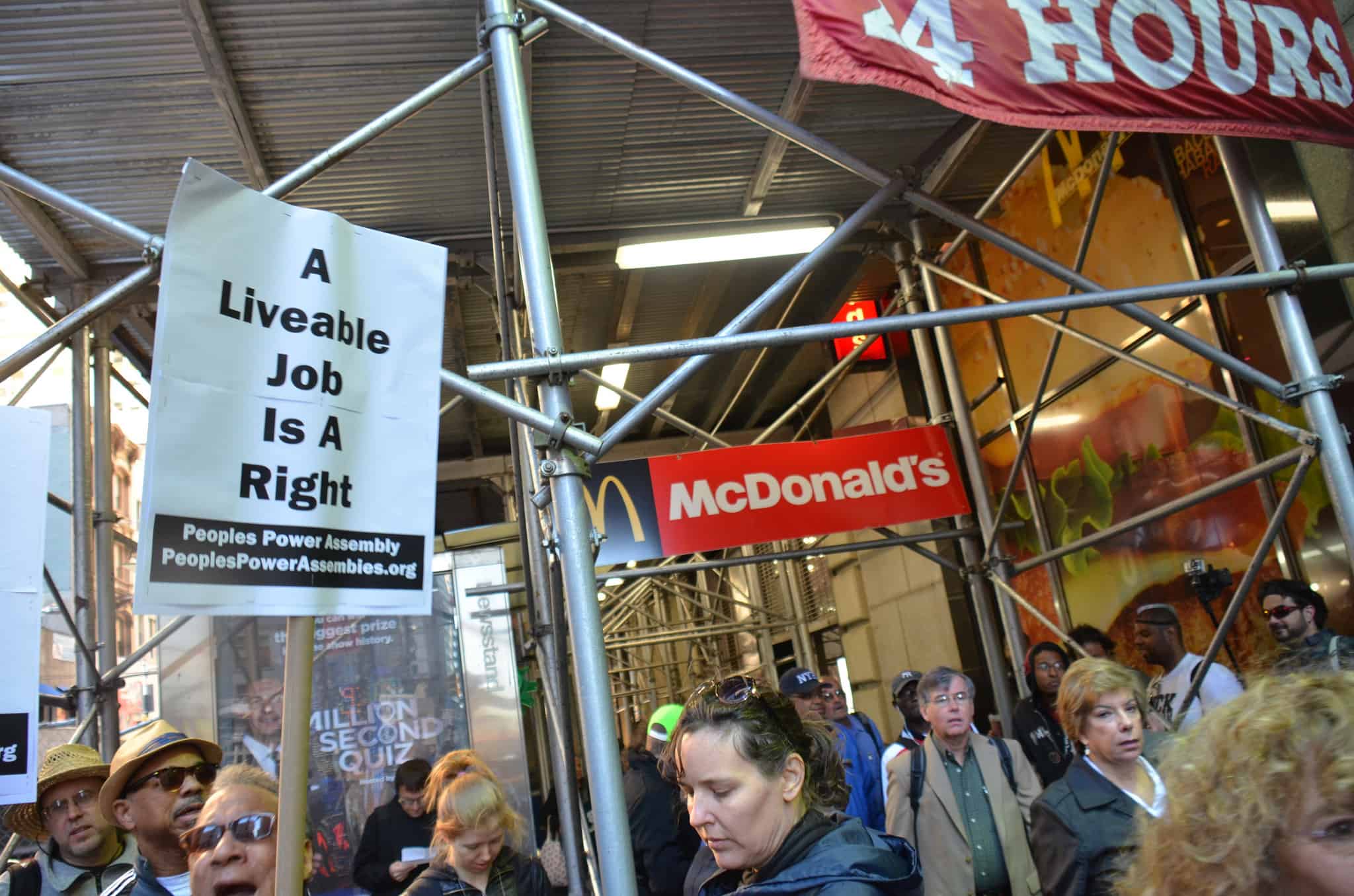
A few years ago I wrote an article addressing the balance between a Franchisor’s control of brand and systems and its exposure to liability due to the Franchisee’s actions. See, https://www.kilcommonslaw.com/franchise/the-franchisors-dilemma-to-control-or-not-to-control/
Shortly thereafter, then general counsel for the National Labor Relations Board, Richard Griffin, Jr., issued a guidance memorandum declaring that McDonald’s Corporation was a “joint employer” with its Franchisees for the employees of their 14,000 franchised restaurants in the U.S. (Peter B. Robb was sworn in as General Counsel of the National Labor Relations Board on November 17, 2017 for a four year term.)
The NLRB Issues Critical Decision
Subsequent to this memorandum’s release, the NLRB issued its critical (but split, three commissioners to two) decision in Browning-Ferris Industries of California, Inc. (362 NLRB No. 186 8/27/2015)(“BFI”). In this decision, the NLRB adopted a two-part test to determine the existence of a joint employer relationship: (1) whether a common law employment relationship exists, and (2) whether the potential joint employer “possesses sufficient control over employee’s essential terms and conditions or employment to permit meaningful bargaining.” The Board found that companies could still be deemed joint employers based on the mere existence of “reserved” joint control, or based on indirect control or control that is “limited and routine.” As note by labor brethren, “The critical distinction is that ‘control’ can now be direct, indirect (through an intermediary) or even a reserved right to control, whether or not that right is ever exercised.” [i]
As a result, BFI was declared a joint employer with another company, and therefore, obligated to enter into collective bargaining with the Teamsters, which was seeking to organize that industry. BFI took the matter to the US Court of Appeals. This decision did not directly address franchise relationships, much to the chagrin of progressive labor proponents (PLP).

NLRB Decision Struck Down
Just this December, an administrative judge declared the NLRB decision unsupported by enabling legislation and struck it down.[ii] As a result of this decision, the BFI case was remanded by the DC Circuit to the NLRB for further review.[iii]
To round off these recent events, in June 2017, the new Labor Secretary rescinded a 2015 guidance memorandum in which the NLRB stated that it considered a company jointly liable for its contractor’s compliance under the National Labor Relations Act, which gave employees the right to unionize if the company had “indirect” control over the terms and conditions of employment or had the “reserved authority to do so.”[iv] Further, numerous states enacted legislation with the goal of protecting businesses from the NLRB’s BFI decision, including Georgia, Texas, Louisiana, Tennessee, Wisconsin, Michigan, Indiana and Utah (thus, prohibiting a Franchisor from being considered an employer or co-employer of the Franchisee’s employees). Other states, including California, Colorado, Massachusetts, Oklahoma, Pennsylvania, Vermont and Virginia were considering similar measures.[v]
Push-back Against the Expansion of the Joint Employer Standard
On whole, there appears to be a general push-back to the attempted expansion of the joint employer standard in general, and in particular as it may relate to franchise relationships.
So how might these events affect franchises in the future? Moreover, with the recent retreat of the joint employer standard, is the battle over, or should Franchisors gird themselves for a renewed effort to make them jointly responsible with their Franchisees relative to the NLRA, Wage and Hour Division, EEOC, or even OSHA?
Although the NLRB’s BFI decision avoided directly addressing franchise relationships, it came under heavy criticism from PLPs for sidestepping this issue, given the great number of employees working for franchises in the U.S. Then came the nationwide protests by McDonald’s Corporation’s franchisee employees seeking a $15.00 an hour wage. In fact, the McDonald’s Corporation had already increased its corporate employees’ wages in April 2015 (affecting 90,000 employees).
Current Laws Put Franchisee’s Employees at a Disadvantage to File Labor Complaints Against Franchisor
The genesis of the recent effort to affect, if not undermine, the franchise model appears to be the former US Wage and Labor Administrator, David Weil, who wrote two articles on the “Fissured Workplace.”[vi] Mr. Weil advocates for greater enforcement of the labor laws which went into effect during the Great Depression under Franklin Roosevelt’s administration. Mr. Weil argues that these laws have become ineffective due to the modern “fissured workplace.”[vii] He takes aim at the franchise structure, arguing that due to the standard franchise agreement’s “vague language” and “reserved rights” to cancel the franchise relationship, the Franchisee’s employees are at a disadvantage relative to workplace issues, including collective bargaining. Therefore, under the current law, the Franchisee’s employees are restricted to filing unfair labor complaints against the Franchisee, who pays their wages, thus leaving the Franchisor out of reach; even though, the franchise agreement (and operating manual) may set strict protocols regarding the system within which the employees work. Therefore, as one labor attorney summarizes Weil’s argument, the franchise agreement “blurs the lines of authority, making negotiations to effect change difficult for both franchisees and workers.”[viii]

The Weil camp was likely energized by the fast-food labor unrest, which followed years of eroding union membership in the United States. However, this camp does not distinguish between food franchises and the multiple other industries in which the franchise model has been successfully employed over the last 50 years. I suspect that fast food employees are the focus as they are the most visible franchise labor force, and may garner greater sympathy from the voting public. The Weil adherents appear to believe that franchising only became a threat recently even though acknowledging that the model came into its maturity in the 1960s.[ix]
The Future of Franchise Law
These articles apparently had a direct impact on the NLRB’s former general counsel Mr. Griffin’s guidance memorandum, which has been withdrawn. In fact, Mr. Griffin cited Weil’s research in an amicus brief filed with the NLRB during the BFI hearing.[x]
Given the see-saw between progressive and conservative policies, we may not have heard the last of Mr. Weil’s offered policy changes. (Although Judge Ringler’s decision seems to have effectively sunk their arguments.) Therefore, Franchisors are advised to prepare for the next onslaught. Again, the issue, as before, is the balance the Franchisor strikes among control of the brand and system and independence of the Franchisee. (For a start, the Franchisor should allow its Franchisees to address all aspects of employment of their workforces, including the setting of wages and benefits.)
Of course, there are risks to this independence as recently, and painfully, experienced by Massage Envy Franchising, LLC.
More on this issue, shortly.
POSTSCRIPT: https://www.washingtonexaminer.com/policy/economy/trump-administration-set-to-scrap-much-of-obamas-labor-legacy-in-2019 Yep, the “joint employer” rule is scheduled to be scrapped early next year — 2019.
ARE YOU LOOKING FOR A FRANCHISE LAW ATTORNEY IN NEW JERSEY?
[i] “The National Labor Relations Board’s New Employer Standard How Has It Changed the legal Landscape?” (Rosen, Spitz and Tinnerello, JacksonLewis Newsletter), July 12, 2016.
[ii] 2017 NLRB LEXIS 635, 365 NLRB No. 156 (N.L.R.B. Dec. 14, 2017). This is worth the read, as Judge Robert A. Ringler wrote a very strongly worded decision countering the progressive labor advocates. For example, Judge Ringler wrote,“…the Browning-Ferris majority’s rationale for overhauling the Act’s definition of ‘employer’ –i.e., to protect bargaining from limitations resulting from the absence from the table of third parties that indirectly affect employment-related issues –relied in substantial part on the notion that present conditions are unique to our modern economy and represent a radical departure from simpler times when labor negotiations were unaffected by the direct employer’s commercial dealings with other entities. [Was the judge responding to Mr. Weil, infra? KK] However, such an economy has not existed in this country for more than 200 years. Many forms of subcontracting, outsourcing, and temporary or contingent employment date back to long before the 1935 passage of the Act. Congress was obviously aware of the existence of third-party business relationships in 1935, when it limited bargaining obligations to the ‘employer’; in 1947, when it limited the definition of ‘employee’ and ‘employer’ to their common law agency meaning; and in 1947 and 1959, when Congress strengthened secondary boycott protection afforded to third parties who, notwithstanding their dealings with the employer, could not lawfully be required to suffer picketing and other forms of economic coercion based on their dealings with that employer. This is not mere conjecture; it is the inescapable conclusion that follows from Supreme Court precedent recognizing that the Act did not confer ‘employer’ status on third parties merely because commercial relationships made them interdependent with an employer and its employees.”
[iii] Browning-Ferris Indus. of Cal. v. NLRB, 2017 U.S. App. LEXIS 26985
[iv] http://thehill.com/regulation/business/336733-labor-department-rescinds-obama-era-guidance-on-joint-employers
[v] “The National Labor Relations Board’s New Employer Standard How Has It Changed the legal Landscape?” (Rosen, Spitz and Tinnerello, JacksonLewis Newsletter), July 12, 2016.
[vi] David Weil, Enforcing Labour Standards in Fissured Workplaces: The US Experience, 22 Econ. & Lab. Rel. Rev. 33, 34 (2011); and see, David Weil, The Fissured Workplace: Why Work Became So Bad for So Many and What Can Be Done to Improve It 158 (2014).
[vii] Defined and identified as a “…collection of franchises, subcontractors, and staffing agencies…” See, Garcia, “Modern Accountability for a Modern Workplace: Reevaluating the National Labor Relations Board’s Joint Employer Standard,” 84 Geo. Wash. L. Rev. 741 (May 2016)
[viii] Garcia, “Modern Accountability for a Modern Workplace: Reevaluating the National Labor Relations Board’s Joint Employer Standard,” 84 Geo. Wash. L. Rev. 741 (May 2016)
[ix] Id.
[x] “The National Labor Relations Board’s New Employer Standard How Has It Changed the legal Landscape?” (Rosen, Spitz and Tinnerello, JacksonLewis Newsletter), July 12, 2016.
BE ADVISED that these comments are not intended as legal opinions and are not to be relied upon as legal advice. If you need franchise-related legal advice, please contact us to discuss the specifics of your franchise business.
© KilcommonsLaw, P.C. 2018
